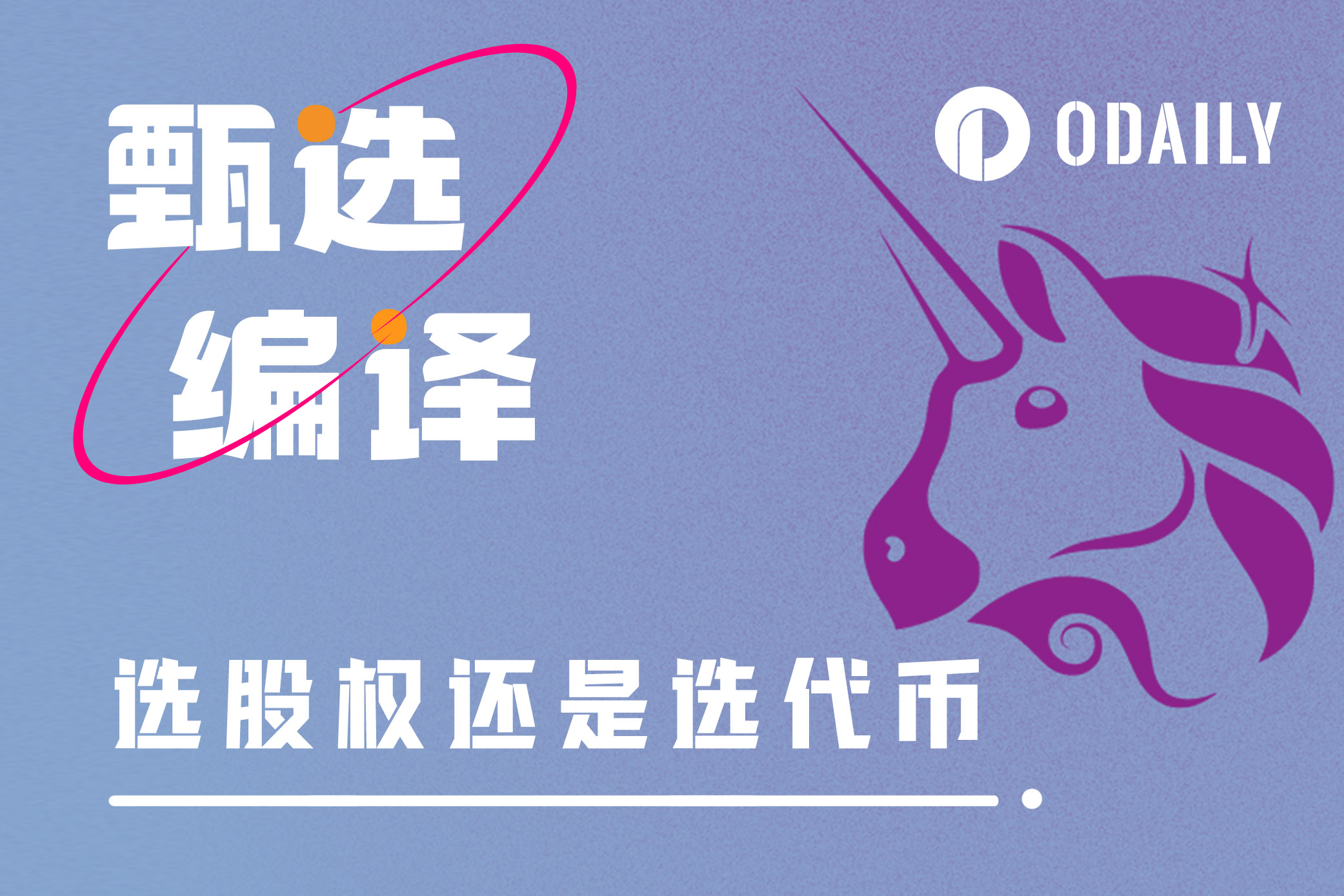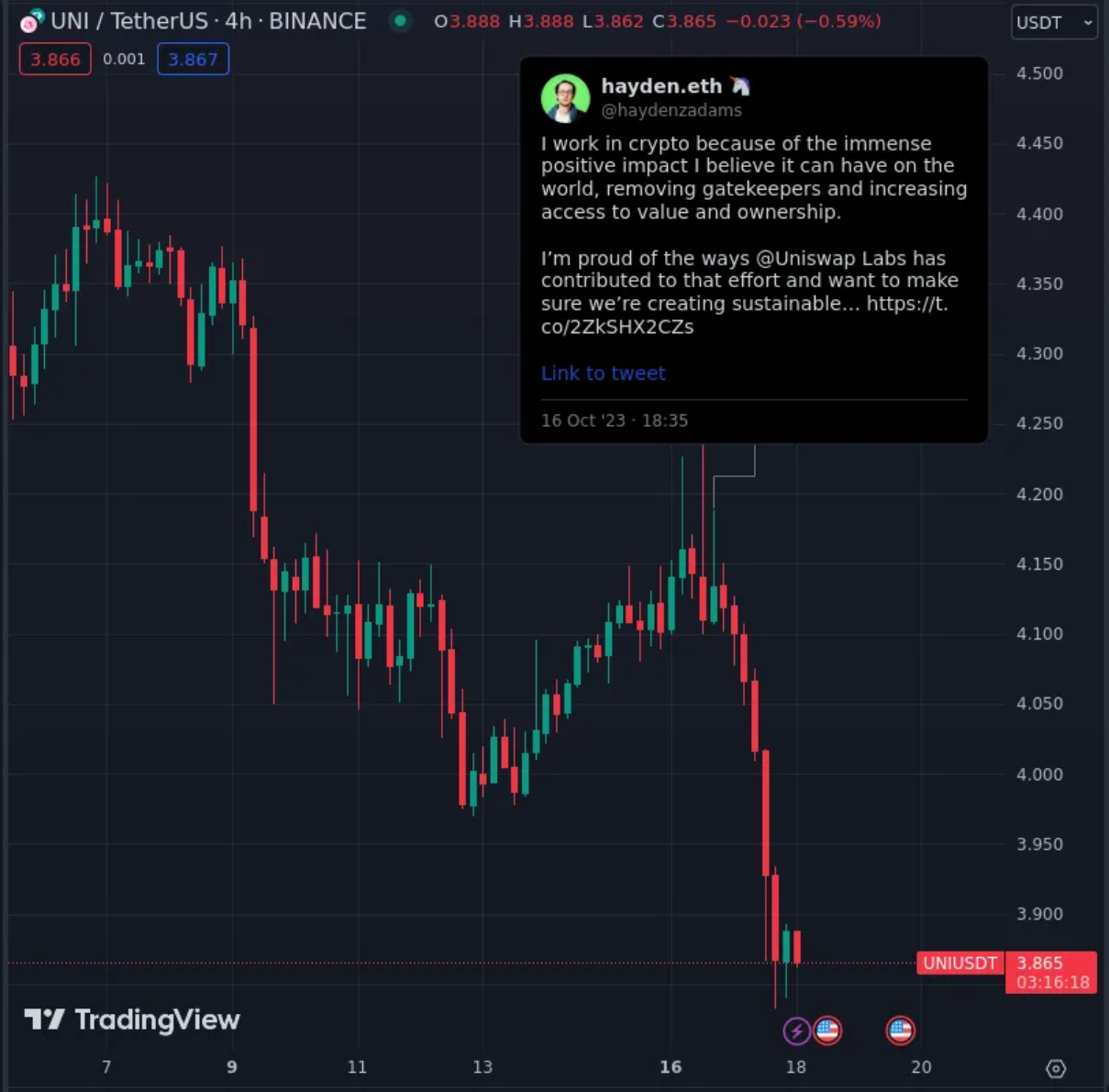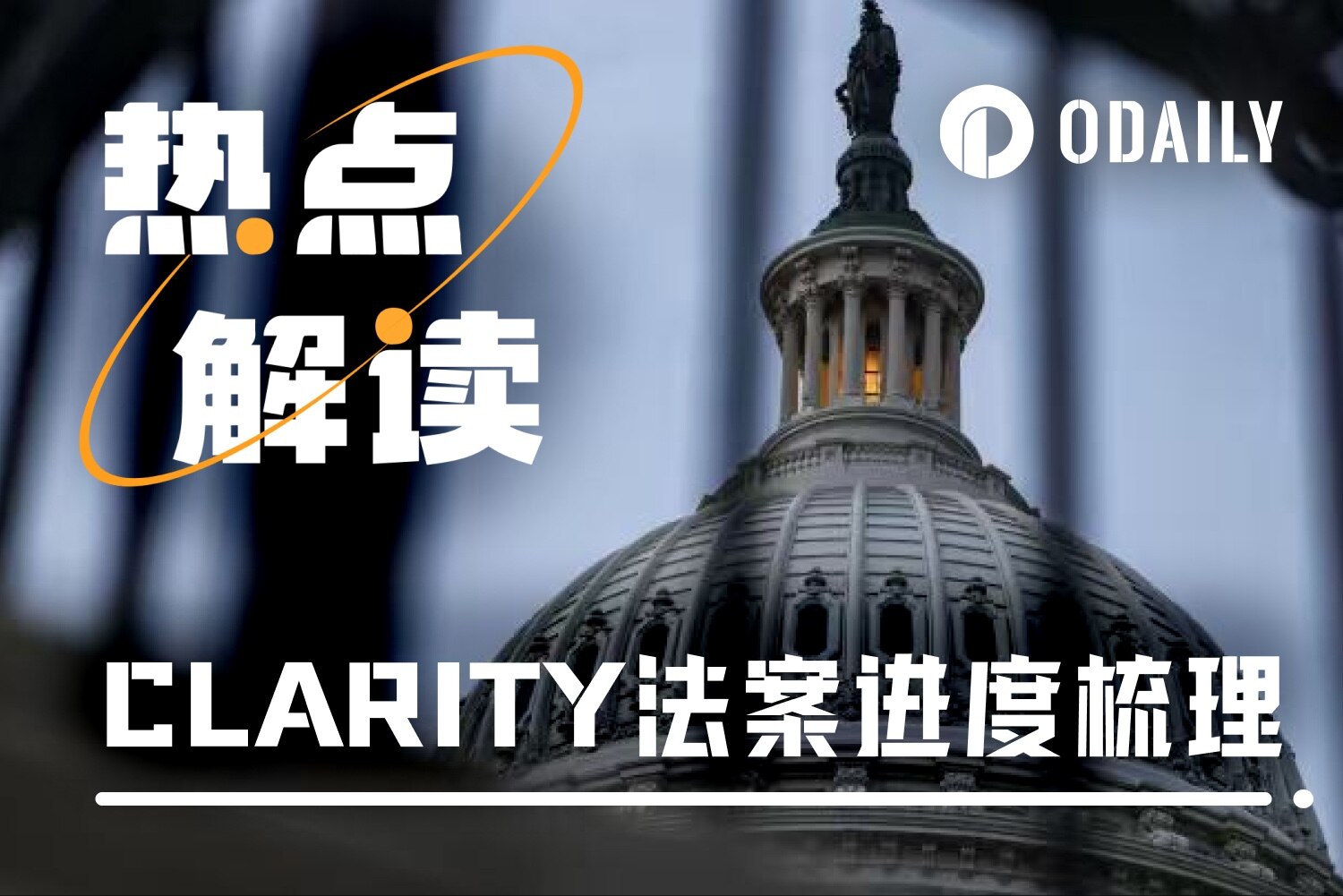Uniswap没少收费,UNI持有者却暗自神伤
原文:《Tokens vs. Equity》
作者:DEFI EDUCATION
编译:Odaily星球日报夫如何

最近,Uniswap 收取费用引起众多讨论,费用最后没有意外地归属于 Uniswap Labs,UNI 代币的持有者并没有享受到类似股票分红的权力。这不禁引出一个古老的话题——“DeFi 项目治理代币是否有实际经济作用”。
DEFI EDUCATION 今日发表的一篇文章认为:Uniswap 推出的界面费使股权持有者受益,代币持有者处于不利地位。这项费用不是支付给代币持有者的,而是支付给 Uniswap Labs 作为运营实体。这种费用解决了 Uniswap Labs 面临的问题,但对 UNI 代币持有者没有带来任何好处。代币持有者缺乏实际权利来保护自己,他们只能依靠社会义务来维护自身利益。在这种情况下,Uniswap Labs 应该证明他们会为协议和代币持有者的利益而努力,否则没有理由持有 UNI 代币。
以下为报告原文,由Odaily星球日报编译。
Uniswap 宣布他们将在其前端引入 0.15% (对于我们的金融读者来说是 15 个基点)的费用,适用于某些交易。
首先,这些费用并不支付给代币持有者。Uniswap 的“费用开关”需要经过治理批准,而这个费用显然不需要。
这些费用支付给 Uniswap Labs,即 Uniswap 协议背后的运营实体。每 100 美元中的 15 美分将支付给 Uniswap Labs。只有特定的代币,如 ETH、USDC、WETH、USDT、DAI 等,在 Uniswap 上进行交换时才会收取这笔费用。如果你只是将一种稳定币换成另一种稳定币,你就不需要支付这笔费用。而且,如果你只是将 ETH 换成 WETH,你也不会被收费。
Uniswap 宣布收费后的 24 小时内,UNI 的价格下跌了 7% ,使其过去 12 个月的表现达到-40% ,并且交易价格是自 2020 年以来的最低点。

价格在 Uniswap 创始人发推文宣布在 Uniswap 前端收费,收益进入 Uniswap Labs 而不是 UNI 代币持有者时的表现。
这就是整个情况。你们中的一些人可能已经对此有所了解。让我们回到 3 年多前的 2020 年 9 月。
在 UNI 代币推出的时候,其他去中心化交易所和 DeFi 协议也推出了自己的治理代币,通常还附带流动性挖矿计划。其中一些协议直接复制了 Uniswap 的代码,并添加了代币以吸引流动性。最显著的例子是 SushiSwap,它通过复制 Uniswap 并引入 SUSHI 代币作为奖励,鼓励存入 Uniswap 的 LP 代币,并将它们迁移到 Sushiswap 来构成竞争威胁。
推出 UNI 代币是对这些竞争压力的回应。Uniswap 可能并不想将治理去中心化或将控制权移交给代币持有者,但他们可能觉得他们必须创建该代币来应对 2020 年的竞争威胁。这导致了一个双重的“所有权”结构,Uniswap Labs 的股权由少数人持有,而代币对所有人都是广泛可得的。Uniswap 团队只持有 21% 的 UNI 代币,而他们可能持有大部分 Labs 的股权。
关于为什么代币持有者和股权持有者存在分歧的原因有很多。我们强烈建议阅读文章《代币的真正含义》。以下是一些关注点:
● 加密风险投资可能会有财务储备、代币市值、运营实体的股权价值和各种社会和法律义务。这使得确定价值如何在利益相关者之间分配变得很困难。
● 公司储备金可能不清楚是属于公司实体还是代币持有者。这可能导致争议和困惑,关于谁有权利使用储备金以及决定如何使用这些资金的权利。
● 代币持有者可能会认为他们有某些权利,比如获得透明财务信息、对团队提出要求或影响项目的方向。然而,这些权利可能在任何文件中没有明确授予,导致冲突。
● 代币可能在不需要传统注册的情况下促进协作,但是当发生争议时,缺乏明确的法律义务成为问题。对于代币持有者在法律上有何权利,尤其与股权持有者相比,往往不清楚。
● 在加密领域,代理问题(即一方(代理人)代表另一方(委托人)做出决策)更加严重。由于缺乏透明度、缺乏监管和技术知识差距,代币持有者(委托人)可能相对于开发人员或组织(代理人)处于劣势。
● 对于投资者来说,代币可能被视为资产,但对于发行者来说,它们可能被视为负债。这种二元性可能导致对代币真正代表什么以及对协议及其利益相关者的影响产生困惑。
● 股权持有者可能更重视公司的长期成功和盈利能力,而代币持有者可能更关注短期收益和代币价值的增长。这些不同的重点可能导致决策和战略上的冲突。
● 加密项目通常基于“社会契约”或社区信任运作。然而,在出现恶意行为或争议的情况下,这些社会契约可能无法履行,特别是与将股权持有者捆绑在一起的传统法律合同相比。
● 代币持有者可能面临风险,如果协议背后的团队表现不端,他们可能会留下毫无价值的代币,这种现象被称为“运营”。而股权持有者则拥有更多传统的法律保护。
● 在传统公司中,很明显股权持有者是最后被支付的。然而,在同时具有代币和股权的加密项目中,付款的优先顺序变得混乱,特别是考虑到“社会契约”。
总之,Uniswap Labs、Uniswap 协议和 UNI 代币在表面上可能看起来是相同的,但仔细观察后,你会发现它们有不同的目标和激励机制。实际上,存在的冲突目标远比你想象的多。
我们先从一个大问题开始——商业化和收入生成。
Uniswap Labs 是一个集中化实体,可能寻求通过专有功能、许可、合作伙伴关系或实体层面的资本筹集来商业化平台或产生收入。当“Uniswap”收购 NFT 聚合器 Genie 时,实际上是 Uniswap Labs 而不是 Uniswap 协议或 UNI 代币持有者。
Uniswap Labs 迄今为止从新费用中赚取了 11, 962 美元,该费用于今天早些时候开始生效。
相反,Uniswap 协议社区和代币持有者可能更倾向于尽可能保持平台的开放和无许可性。代币持有者希望费用流向他们,而不是 Uniswap Labs。
即使 Uniswap 的许可和知识产权也存在争议。Uniswap Labs 希望保护其代码和功能,以防止恶意分叉,并保持竞争优势。而更广泛的社区则主张全面开放的方法,允许任何人在没有限制的情况下分叉、修改或构建该协议。
如果治理变得更加去中心化,代币持有者可能会推动符合他们自身利益的决策,即使这些决策与最初的愿景或对协议的长期健康可能不利。作为一个具有不同利益的多样化群体,代币持有者可能对协议的发展方向持有不同的意见,受到短期收益、意识形态信仰或其他因素的影响。相反,对协议发展方向具有重大影响力的团队很可能倾向于做出与他们自己的愿景或商业利益一致的决策。
要明确一点:在双重的股权+代币结构中,没有清晰的设置可以让每个人都获得他们想要的。
作为 Uniswap 协议的运营实体,Uniswap Labs 有责任证明他们是善意的行为者,为协议和 UNI 代币持有者的利益而努力。否则,持有 UNI 代币就没有理由。
Uniswap 现在推出了一个“界面费”,这仅仅是为了 Uniswap Labs 的利益,而不是协议的利益。现在,你可能会辩称为运营实体提供资金将间接地使协议受益,通过支付他们的运营费用(尽管我们不知道这些费用是什么)。Uniswap Labs 在 2022 年 10 月筹集了 1.65 亿美元,团队很可能一直在寻找在不必出售额外股权的情况下继续资助运营的方法。
更加愤世嫉俗的观点可能是,团队已经将 UNI 代币(他们仅持有约 21% )实现了货币化。团队很可能拥有 Uniswap Labs 股权的大部分,并寻找增加股权价值的方法。有什么比现金流更好的方式来增加股权价值呢?
也许真正的答案是:上述所有!
明显地,这些费用解决了 Uniswap Labs 面临的一系列问题,但对 UNI 代币持有者并没有解决任何问题。
这并不是股权持有者在损害代币持有者的情况下受益的第一次。
我们多次谈到过 dYdX 的旧代币经济模型。用户在该平台上进行交易会获得代币激励,从而鼓励过度交易活动。与此同时,交易费用将支付给 dYdX 的运营实体。为此设置的理由是“监管”。也许 Uniswap 也会提到同样的理由。当然,我们不认同这种观点。监管成为补偿代币持有者的障碍,并不意味着可以采取有利于股权而损害代币持有者的行动。
然而,代币持有者没有任何实际权利可以行使来保护自己。代币仍然只受到社会义务的支持(持有者出售的威胁),而不是任何真正的法律义务。如果团队不关心代币,并主要通过其他方式(即股权)获得补偿,不要指望社会义务来保护你。
代币设计,真是复杂又晦涩呢。



